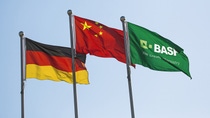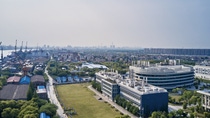BASF in Greater China 2021
Supplier management
BASF aims to optimize its supply chain in a sustainable manner through its industry collaborations and digitalization approaches.

No results found
Digitalization enables us to better support our customers with improved efficiency in manufacturing and logistics operations.
Digital technologies with Artificial Intelligence (AI) solutions helps BASF to steer logistics operations at sites with improved efficiency, safety, and security. A hybrid solution was implemented to resolve the issues of traffic congestion and loading capacity in the warehouse at the Shanghai Pudong Innovation Park. These included streamlining the operation procedure, covering the assets management, truck safety inspection, depot traffic safety, and emergency response. Additionally, the Yard Management System was also rolled out to ease the logistics pressures at the site by enabling truck pre-registration, an automated gate system, automated weighing, e-truck safety inspection, time slot management, smart filling, and several other features.
Instead of diesel vehicles, the Automated Guided Vehicle (AGV) tractor is used for onsite transportation. The AGV tractor was fully operational at the Shanghai Pudong Innovation Park in June 2021. It allows for an automated transportation system on designated routes at the location. Apart from the improved efficiency in operations, the implementation of AGV has resulted in cost savings and a reduction in carbon emissions.

The implementation of the AGV tractor became fully operational at the Shanghai Pudong Innovation Park in mid-2021.




